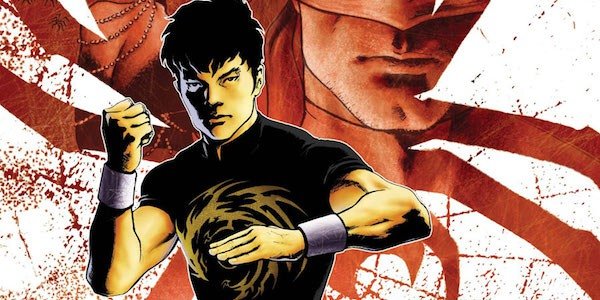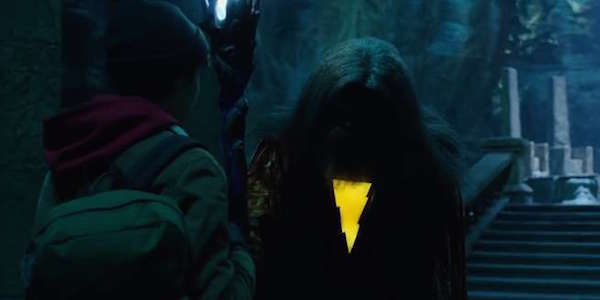
With all the excitement surrounding Marvel, Star Wars and Pixar of late, it’s easy to forget that Disney’s collection of franchises recently got bigger thanks to the purchase of 21st Century Fox. Among the studio’s new acquisitions is the Planet of the Apes film series, and during CinemaCon last month, it was one of the Fox franchises that Disney indicated would continue on post-regime change, although there doesn’t appear to be anything in active development right now.
It’s been over 50 years since the first Planet of the Apes movie was released, and thanks to the reboot trilogy than ran from 2011 to 2017, the franchise has had new life breathed into it. I’m game for Disney delivering a new Planet of the Apes movie and would especially be interested in a remake of the original, but on one condition: it needs to be set in the same continuity as the reboot movies.
Most of you are probably saying right now that we’ve been down this remake road before, and it did not go well. That’s true. In 2001, after over a decade in development hell, Fox finally released a Planet of the Apes remake, which Tim Burton directed and starred folks like Mark Wahlberg, Tim Roth, Helena Bonham Carter and Paul Giamatti. It ended on quite the cliffhanger, and it was abundantly clear that just like the original did, Fox intended for this new Planet of the Apes to spawn sequels.
This Planet of the Apes proved to be a financial success, making over $362 million off a $100 million budget, but it was met with mixed-negative critical reception. Tim Burton declared he’d rather “jump out a window” then work on a sequel, and Fox eventually just shut down plans to continue this iteration of the franchise, paving the way for what would become Rise of the Planet of the Apes.
Disney is certainly within its rights to press the reset button start on the entire Planet of the Apes franchise again, but that would be a mistake. The mythology crafted by Rise of the Planet of the Apes, Dawn of the Planet of the Apes and War for the Planet of the Apes is too rich to toss aside, and it actually makes a more direct Planet of the Apes remake sound a lot more interesting than starting from scratch.
Fox was wise to move away from the traditional Apes canon and instead use the most recent Planet of the Apes trilogy to look back on how Earth’s apes became super-intelligent and how humanity was almost wiped out and how the survivors started losing their intelligence. It was an interesting and more ‘realistic’ look at how an ape uprising would occur.
Now that the groundwork has been laid, and Caesar’s story has ended, we’re free to jump forward several centuries to see how ape society has evolved since Caesar led his followers to their promised land. Naturally it’ll look a lot like what was shown in the original Planet of the Apes movie, but naturally there’s also room to take some creative liberties in order to stand out from what’s come before.
If you’re not interested in retreading original Planet of the Apes territory, that’s fine, because Rise of the Planet of the Apes, Dawn of the Planet of the Apes and War for the Planet of the Apes work perfectly fine on their own. There’s never a guarantee that origin stories do well, but both critically and commercially, these movies all succeeded, and I’d argue that this Apes trilogy is one of the best movie trilogies of all time.
Of course, there’s also the possibility that Disney would rather have the next Planet of the Apes movie have closer ties to War for the Planet of the Apes, perhaps by following Caesar’s son, Cornelius, as an adult. That would be fine, but in terms in terms of setting and aesthetics, we’ve gotten three movies worth of apes running around on a ‘normal’ Earth. Wouldn’t it be more interesting to instead see how they’re descendants are doing in a civilization that somewhat resembles what humans once lived in?
Think about it: we’re arguably more invested in the apes than ever now that we know their background. We watched over three movies as they rose from common animals to simians with human-level intelligence, and now humans are on their way to becoming as primitive as the apes once were. Now that their ‘origin story’ is out of the way, we can finally move forward and see how the fruits of Caesar’s labor led to the apes flourishing on this new Earth centuries later.
Naturally this paves the way for the original Planet of the Apes story to unfold, albeit with some adjustments to ensure it fits within this reboot continuity properly, such as the newest Cornelius (i.e. the one that Roddy Mcdowell played) being a direct descendant of Caesar. And naturally if Disney delivers a Planet of the Apes remake, that doesn’t have to mark the end of this iteration of the franchise. With all the money that Disney paid for Fox, you can be sure the company’s not going to bring Planet of the Apes back to the big screen for a one-and-done tale.
The key difference, though, for any sequels to follow Disney’s Planet of the Apes remake is that outside of George Taylor coming to the future (Rise of the Planet of the Apes has a news report of the Icarus leaving Earth, and a later newspaper headline reveals the ship was lost), time travel would be incorporated. In the original Planet of the Apes film series, Zira and Cornelius were transported in time to the contemporary United States, and their son, Caesar, ended up the catalyst for the future his parents came from. It was a cyclical timeline!
That doesn’t need to happen in this version of the franchise. The apes became smart through exposure to a viral-based drug, so there’s no reason to go back to this period. Instead, we can focus on more on fleshing out this strange society even more so than the original Planet of the Apes movies did. Rather than eventually nuke the world, which is what happened in Beneath the Planet of the Apes, we can explore a different kind of aftermath from George Taylor’s presence, one that perhaps leads to human and ape relations improving and, over time, Earth returning to something more familiar.
Since Fox will now only be making five to six movies per year under the Disney banner, it remains to be seen when the studio will decide to tackle Planet of the Apes. Whenever that time comes, the studio would be better served piggybacking on what Fox delivered earlier this decade and presenting a Planet of the Apes remake through that lens as opposed to beginning completely anew.
Let us know what you’d like to see next from the Planet of the Apes franchise in the comments below. Stay tuned to CinemaBlend for any updates on what Disney has in store for the Planet of the Apes, and for now, you can learn what movies are hitting theaters later this year in our 2019 release schedule.





